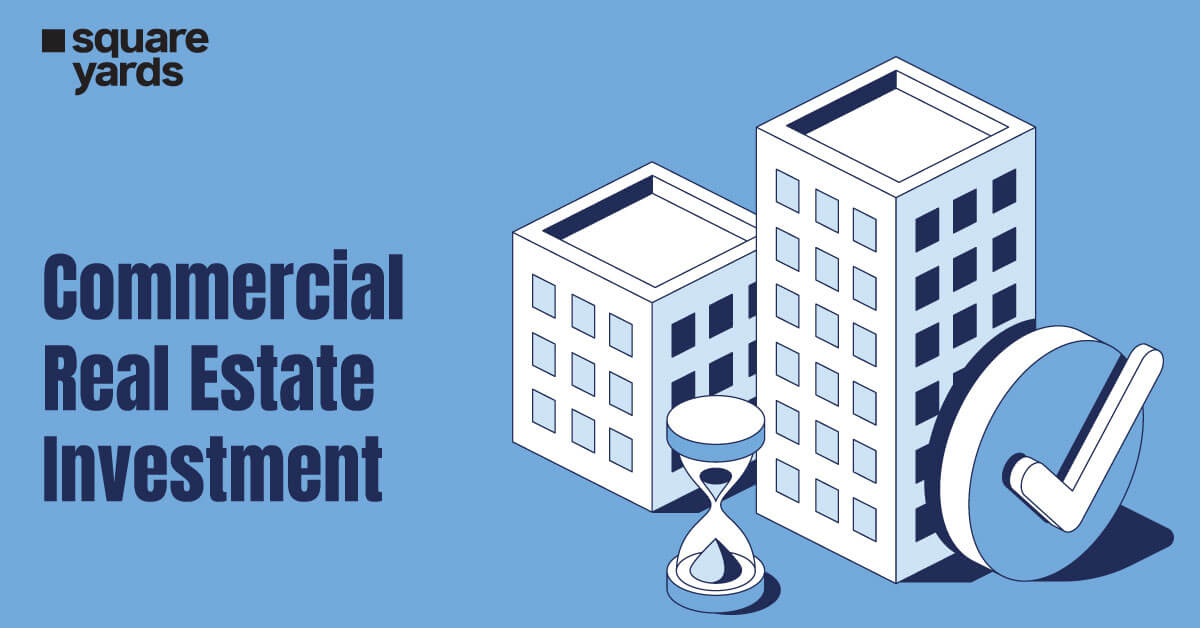Commercial real estate investment is about acquiring business properties, like office buildings, retail spaces, industrial complexes, and multifamily housing units. Unlike the residential market, driven by the need for homes, commercial real estate thrives on the economic pulse of the business sector and broader market trends. The perks? Think of higher revenue potential, longer leases, and stable cash flow. These properties generate steady income and appreciate over time, offering substantial long-term gains. The tax advantages make commercial real estate an enticing option for diversifying their investment portfolios.
However, diving into commercial real estate isn’t all smooth sailing. It demands significant upfront capital and tends to have poor liquidity compared to other investment types. The market is more complex, influenced by economic conditions, local market dynamics, and evolving business practices. Despite these challenges, many investors find commercial real estate incredibly rewarding. With careful planning, thorough research, and strategic management, this investment can yield impressive returns and bolster a well-balanced portfolio. Whether you’re a seasoned pro or a newbie, grasping commercial real estate fundamentals is key to making informed decisions and thriving in this competitive market.
Comparing Commercial and Residential Real Estate

When considering real estate investment, it’s essential to understand the key differences between commercial and residential properties. Deciding between these two options is like choosing between a high-stakes poker game and a steady, strategic chess match. Both have their unique charms and challenges. Commercial and residential real estate serve different purposes, attract different types of tenants, and offer distinct advantages and obstacles. Knowing these differences will help you make informed investment decisions and choose the right path for your financial goals. Let’s compare and see what sets these two investment options apart.
|
Feature |
Commercial |
Residential |
|
Purpose |
Business activities |
Housing |
|
Examples |
Offices, retail spaces, warehouses |
Single-family homes, apartments, condos |
|
Lease Structure |
Longer term (3-10+ years) |
Shorter term (6 months – 1 year) |
|
Revenue Potential |
Higher rent per square foot, multiple tenants |
Lower rent per unit, consistent demand |
|
Management & Maintenance |
More hands-on, complex regulations and professional management are common |
Easier to manage, fewer tenants, simpler maintenance |
|
Market Dynamics |
Economic health, business growth |
Population growth, housing demand, local market conditions |
|
Risk & Reward |
Higher risk, higher potential returns |
Lower risk, stable & predictable returns |
Advantages of Investing in Commercial Real Estate
Commercial real estate investment offers many benefits, making it an attractive option for many investors. Here are some of the key advantages:
Higher Revenue Potential
One of the most compelling reasons to invest in commercial real estate is the potential for higher revenue. Commercial properties typically generate more rental income than residential properties due to the larger spaces and higher rent per square foot. Businesses often pay a premium for prime locations that attract customers and enhance their operations. This increased revenue can significantly boost your overall return on investment.
Longer Lease Agreements
Commercial properties often have longer lease agreements compared to residential properties. While residential leases typically last for one year, commercial leases can range from three to ten years or more. These long-term leases provide investors with a stable and predictable income stream, reducing vacancy risk and frequent tenant turnover. Longer leases also mean fewer negotiations and less time searching for new tenants.
Reduced Competition
The commercial real estate market tends to have less competition than residential. Many investors shy away from commercial properties due to the higher capital requirements and perceived complexity. However, for those willing to navigate commercial real estate, this reduced competition can lead to better investment opportunities and less pressure when bidding on properties.
Stable Cash Flow
Commercial properties often provide a more stable cash flow compared to residential properties. Businesses, especially well-established ones, are more likely to stay in one location for an extended period, ensuring consistent rental income. Commercial leases often include provisions for tenants to cover property expenses such as maintenance, insurance, and property taxes, further stabilising the investor’s cash flow.
Property Value Appreciation
Commercial real estate has the potential for significant property value appreciation. As the property generates consistent income and demand for commercial space increases, the property’s value can rise substantially over time. Strategic improvements and effective property management can further enhance the property’s value, providing substantial returns upon sale.
Tax Incentives
Commercial real estate investment offers various tax benefits that can enhance your overall return. These include depreciation deductions, which allow you to deduct a portion of the property’s value each year, reducing your taxable income. Additionally, you can benefit from deductions for property expenses such as mortgage interest, property management fees, and maintenance costs. These tax incentives can significantly lower your tax liability and increase your net income from the investment.
Drawbacks of Investing in Commercial Property
While investing in commercial real estate can offer substantial benefits, it’s also essential to consider the potential drawbacks. Here are some of the key challenges associated with commercial property investment:
High Capital Requirements
The high capital requirement is one of the most significant barriers to entry in commercial real estate. Purchasing commercial properties typically involves a substantial upfront investment compared to residential properties. This includes the purchase price and the costs associated with property improvements, maintenance, and management. Additionally, securing financing for commercial properties can be more challenging, often requiring larger down payments and stricter lending criteria. For investors without significant capital reserves, these high costs can be prohibitive.
Limited Liquidity
Commercial real estate investments tend to be less liquid than other investments. Liquidity refers to the ease with which an asset can be quickly converted into cash without significantly affecting its value. Unlike stocks or bonds, which can be sold relatively quickly in financial markets, selling a commercial property can take months or even years. This process involves finding a suitable buyer, negotiating terms, and completing legal and financial paperwork. During economic downturns or in less desirable markets, the time it takes to sell a commercial property can increase, further limiting liquidity. This lack of liquidity can pose a significant risk for investors who may need quick access to cash.
Methods for Investing in Commercial Real Estate
Investing in commercial real estate can be approached in several ways, each with its unique benefits and considerations. Here are some of the primary methods:
Direct Property Investment
Direct property investment involves purchasing commercial properties outright. This method provides full control over the property and the potential for significant returns through rental income and property appreciation. Investors can choose from various types of commercial properties, such as office buildings, retail spaces, industrial properties, and multifamily units. While direct investment offers substantial control and potential rewards, it also requires significant capital and hands-on management, including dealing with tenants, maintenance, and regulatory compliance.
Real Estate Investment Trusts (REITs)
Real Estate Investment Trusts (REITs) own, operate, or finance income-producing real estate. By investing in REITs, individuals can gain exposure to commercial real estate without the need to directly purchase properties. REITs trade on major stock exchanges, making them highly liquid and accessible. They offer regular income through dividends, as REITs are required to distribute a significant portion of their earnings to shareholders. This method allows investors to diversify their portfolios and benefit from professional management. However, REITs are subject to market fluctuations and may not provide the same level of control as direct property ownership.
Real Estate Funds and Syndications
Real estate funds and syndications pool capital from multiple investors to purchase and manage commercial properties. These funds are managed by professional investment firms or syndicators who handle property acquisition, management, and sale. This method allows investors to participate in larger and potentially more lucrative deals than they could on their own. It also provides diversification across different properties and markets. Investors benefit from the expertise of professional managers but typically have less control over individual investment decisions. Real estate funds and syndications often have minimum investment requirements and may require a longer investment horizon.
Crowdfunding Platforms
Real estate crowdfunding platforms enable individuals to invest in commercial properties with relatively small amounts of capital. These online platforms pool funds from many investors to finance specific real estate projects. Crowdfunding provides access to various property types and investment opportunities that might otherwise be unavailable to individual investors. It allows for diversification and offers the potential for attractive returns. However, real estate crowdfunding can be riskier, as projects may involve higher levels of speculation and are less regulated than traditional investment methods. Additionally, these investments can have limited liquidity and longer holding periods.
Key Commercial Real Estate Terms to Know
Understanding these essential terms can help you navigate the commercial real estate market more effectively:
-
- Net Operating Income (NOI): Measures a property’s profitability by subtracting operating expenses from rental income.
- Cap Rate (Capitalisation Rate): Indicates potential return on investment, calculated by dividing NOI by the property’s purchase price.
- Gross Lease: The Landlord pays all property expenses; the tenant pays fixed rent.
- Triple Net Lease (NNN): Tenant pays property taxes, insurance, maintenance, and rent.
- Building Classifications (Class A, B, C):
- Class A: Highest quality, prime locations.
- Class B: Good quality, well-maintained.
- Class C: Older, less desirable locations.
- Tenant Improvement Allowance (TIA): Funds the landlord provides for tenant space modifications.
- Common Area Maintenance (CAM) Fees: Tenant fees for maintaining shared property areas.
- Vacancy Rate: Percentage of unoccupied rental units in a property.
- Cash on Cash Return: Annual return on investment relative to the cash invested.
- Due Diligence: Comprehensive property evaluation before purchase.
- Lease Term: The duration of the lease agreement is typically several years.
- Escalation Clause: Provision for periodic rent increases based on inflation or a schedule.
- Debt Service Coverage Ratio (DSCR): Measures a property’s income ability to cover debt, calculated by dividing NOI by total debt service.
Conclusion
Commercial real estate investment offers numerous benefits, such as higher revenue potential, longer lease terms, and valuable tax incentives. However, it also comes with challenges like high capital requirements and limited liquidity. Understanding the different investment methods and key terms allows you to make informed decisions and strategically build a successful commercial real estate portfolio. Whether you’re considering direct property investment, REITs, funds, or crowdfunding, thorough research and careful planning are essential to maximising returns and achieving your financial goals.
Frequently Asked Questions (FAQs)
Is Now a Good Time to Invest in Commercial Real Estate?
Market conditions vary, so it's essential to research current trends and consult experts. Evaluate local dynamics and economic forecasts to make an informed decision.
What is the Best Way to Invest in Commercial Real Estate?
Options include direct property investment for control, REITs for liquidity and diversification, real estate funds for professional management, and crowdfunding for accessible entry with low capital.
What is a Good Return on Investment (ROI) for Commercial Real Estate?
A good ROI typically ranges from 8% to 12% annually, depending on property type, location, and market conditions.
Which Commercial Real Estate Investment is the Most Profitable?
Prime locations, such as office buildings in business districts, retail spaces in popular areas, and industrial properties in logistics hubs, are generally the most profitable.



































